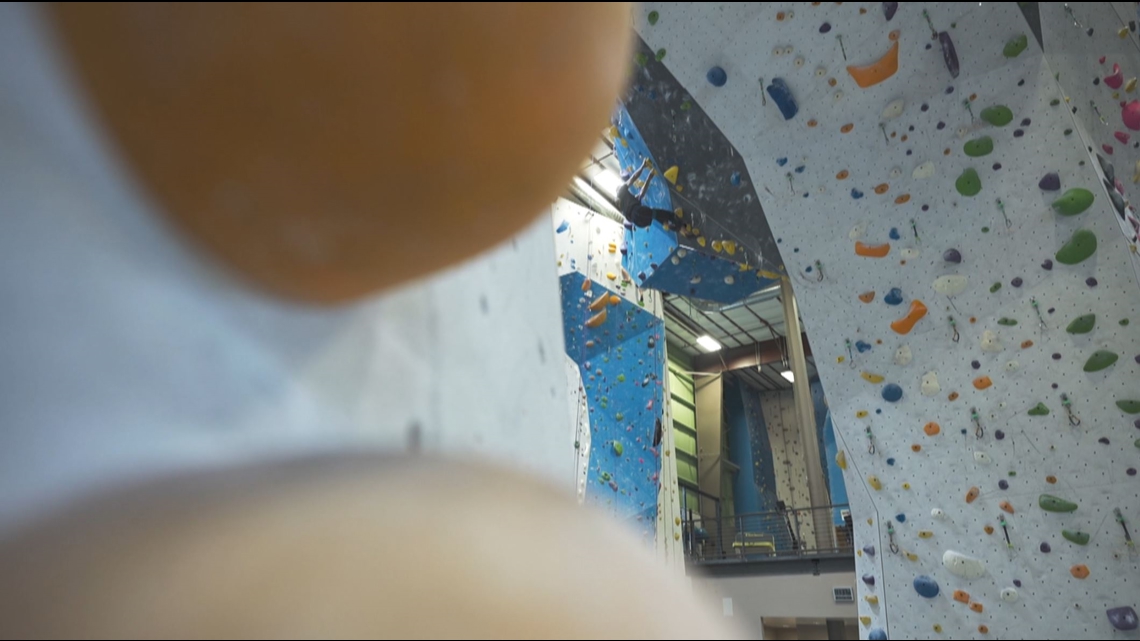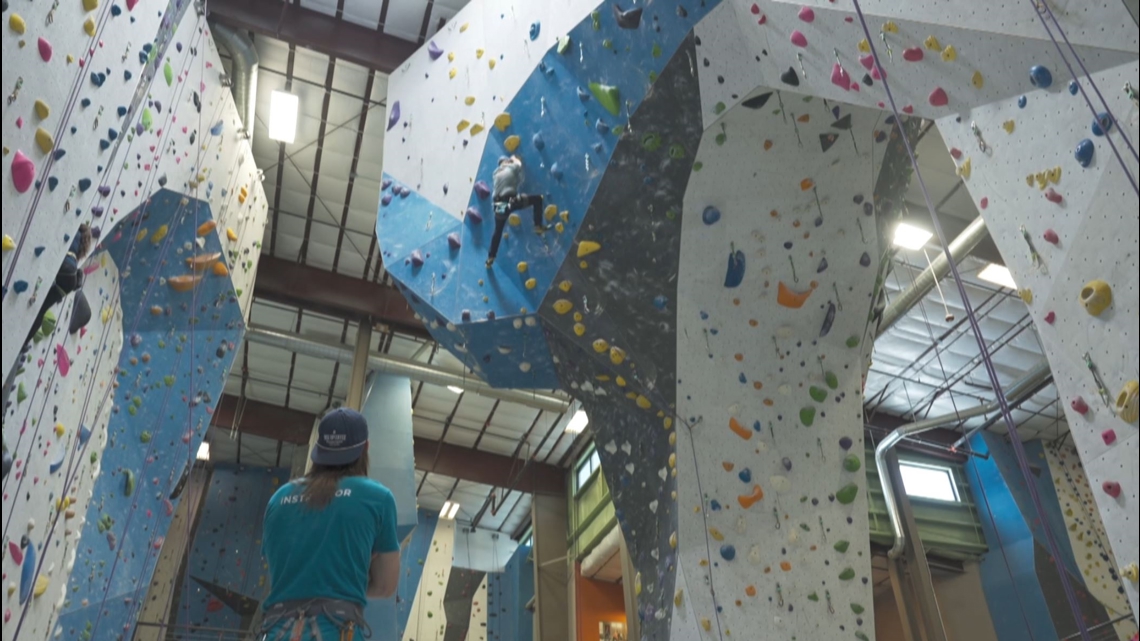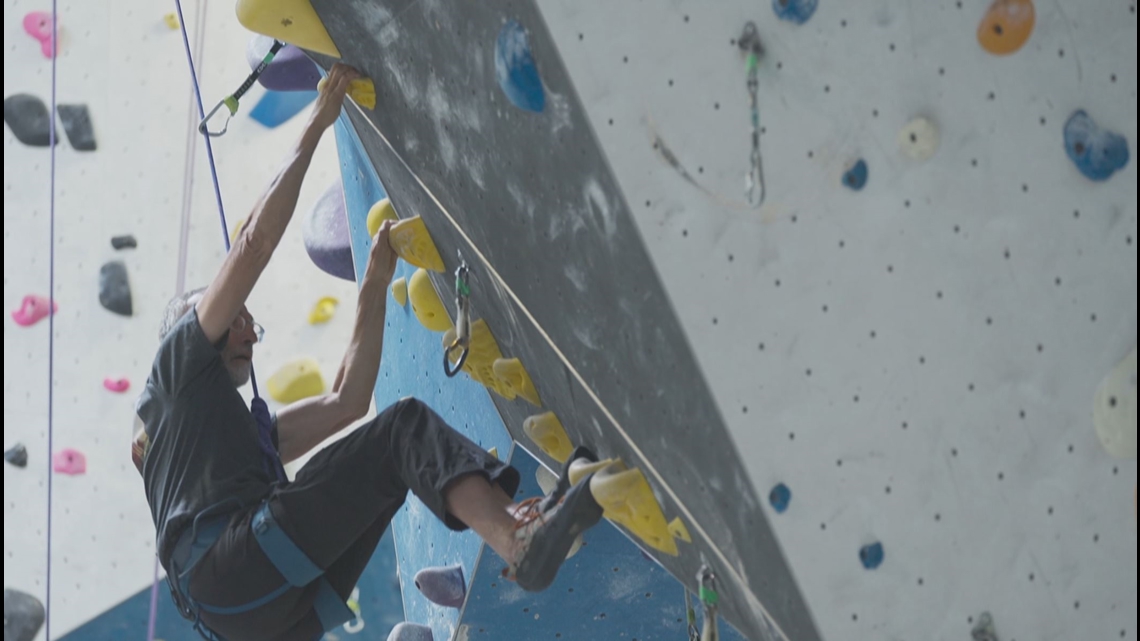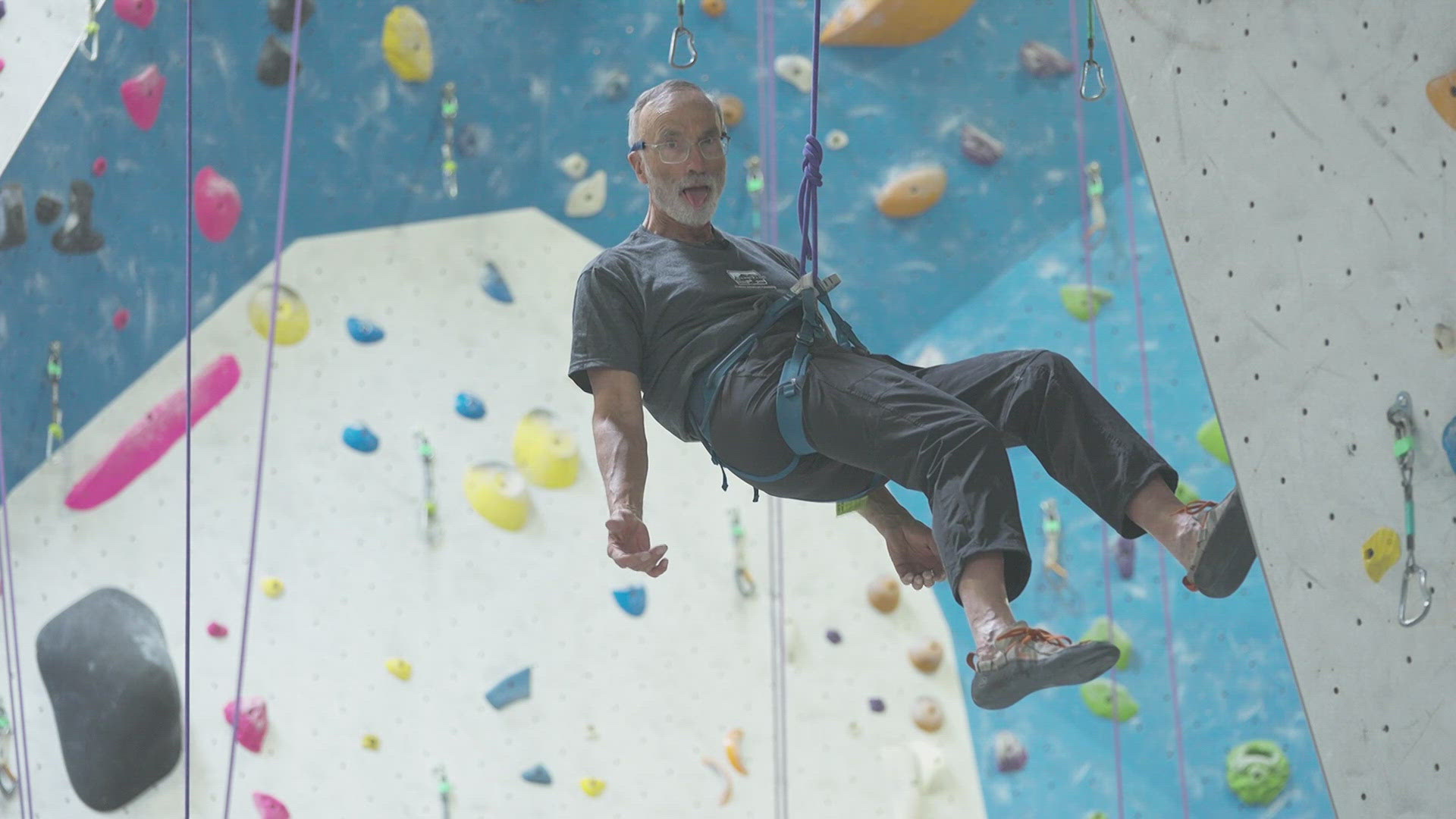GOLDEN, Colo. — On most Tuesdays, Doug Redosh can be found at Movement climbing gym in Golden. At 69, the retired neurologist has been climbing for 50 years and still feels a rush.
He's conquered cliffs for decades, but they are no match for his current climb: a diagnosis of Parkinson's disease.
“Parkinson's is, as we say, neurodegenerative disorder. Usually, we say people have nonmotor symptoms early on and later they develop motor symptoms -- stiffness, rigidity, slowness in movements and tremor,” he said. “I was formally diagnosed in 2019, but my father had Parkinson's, so I knew I was at high risk.”
Redosh always knew in the back of his head that a diagnosis was a possibility, but that didn’t mean hearing it for the first time didn’t hurt.
“It wasn't a shock. I knew it was coming, but it was confirmatory of what I knew was coming,” he said. “I was bummed, sure. I was bummed.”
After the diagnosis, Redosh kept climbing, figurately and physically, by creating a local chapter of a program called Up Ending Parkinson’s.


“This was founded in Virginia by a gym manager who is a physical therapist,” Redosh said about the program. “And she noticed climbing patients were doing better with their Parkinson’s.”
A recent study solidified the theory. The study included two exercise groups, a standard exercise group and a climbing group.
“The climbers did better than the standard exercise group, because we know that exercise does help,” Redosh said. “This is the first time a study shows that climbing is beneficial, and admittedly climbing is a lot more fun than being on a treadmill or on a stationary bike.”


Redosh’s chapter of Up Ending Parkinson’s meets every Tuesday. Since he started a few months ago, he’s welcomed a few participants, including Jared Sacks, who was diagnosed in 2021 at age 34.
“I have some family members that have Parkinson's but I definitely was not expecting it,” Sacks said. “I'm an avid climber and I think I've really been looking for people in the community that are going through the same thing.”
Sacks found the community with help from Redosh. Both noticed the improvement of symptoms.
“I feel like I move smoother on the wall than sometimes I do walk,” Redosh said. “I feel like when I'm climbing the tremor can go away.”


"I've been climbing for a long time, and I didn't know that it would help with Parkinson's,” Sacks said. “It also helps, puts me in the moment. When you're on the wall you don't think about anything else but what’s it front of you. You don't have to worry about what's going on at work, what's going on in your personal. Just attacking the problem.”
Redosh believes Parkinson’s is a problem no one should face alone. He hopes more people with Parkinson’s will join them and see for themselves how climbing can change more than someone’s view.
“I think its empowering. If I can climb a mountain you know I can deal with Parkinson’s,” Sacks said.
“That’s what I want to get across, that this can help,” Redosh added.
The group meets every Tuesday at the Movement gym in Golden at 10 a.m. The program welcomes all levels of climbing. Participants can even be brand new to the sport.

